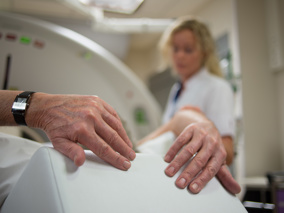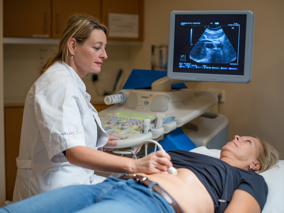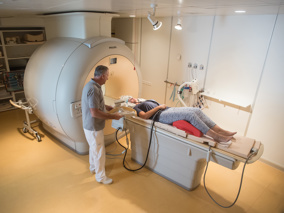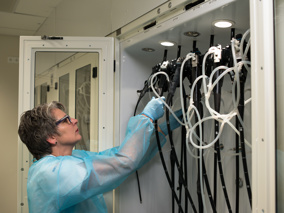Lung cancer
Lung cancer is a type of cancer that originates in the lungs. It is a common type of cancer. Every year, about 14,500 people are diagnosed with lung cancer. Eighty percent of these people are over 45 years old. In about half of them, the cancer has already metastasized when the doctor discovers the disease.
On this page you can read more about the different forms of lung cancer, the symptoms, the examinations and the treatments.
Learn more about lung cancer
Causes of lung cancer
There is no one clear cause of lung cancer. However, there are things that increase the risk of lung cancer. The main cause is smoking. But people who have never smoked can also get lung cancer.
Lung cancer is usually not hereditary. If it occurs more often in a family, it is often due to the same lifestyle, such as (secondary) smoking. Sometimes hereditary factors do play a role. Then the risk of lung cancer is slightly higher.
Symptoms of lung cancer
In the beginning, the signs and symptoms of lung cancer are usually vague. For example, you may cough a lot or be tired. These symptoms resemble a flu or a cold. That is why people often go to the doctor late and the diagnosis of lung cancer is made late.
Symptoms that may indicate lung cancer are:
- a lot of mucus in the lungs
- dry irritating cough that lasts for weeks
- blood in coughed up mucus
- shortness of breath
- pneumonia that does not go away, not even with antibiotics
- hoarseness without a sore throat
- a swelling in the neck or face
- chest pain
- back pain or pain in the shoulders.
Types of lung cancer
Lung cancer is not one disease. There are different forms. The two most common types are non-small cell lung cancer and small cell lung cancer. Non-small cell lung cancer occurs in 8 out of 10 people with lung cancer. About 1 in 10 people with lung cancer have small cell lung cancer. There are also rare forms: mesothelioma and neuroendocrine tumors of the lung.
Mesothelioma is also called pleural cancer or asbestos cancer, because it is usually caused by asbestos. This is a malignant form of cancer in the membranes of the chest, lungs or airways.
Some tumors in the lung originate in the neuroendocrine cells. These are called neuroendocrine tumors of the lung.
Within these main groups there are other species with their own characteristics. We do extensive diagnostic tests to know what type of lung cancer you have. This allows us to choose the treatment that best suits your needs.
Waiting
We want to inform you as well as possible about the waiting time per condition. We do this based on a prognosis of the current waiting list. The waiting time can vary from patient to patient for various reasons. Your attending physician will give you more information during your outpatient consultation.
-
14 days (max)
Wait times lung cancer
The wait times for an appointment or second opinion for lung cancer are max 14 days. Your referrer can contact us for more information.
-
6 days
First appointment
This is approximately how long it will take until you have your first appointment
More about your first appointment
 nl
nl








